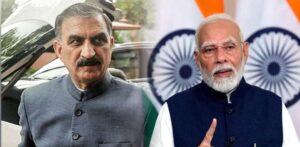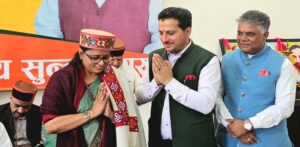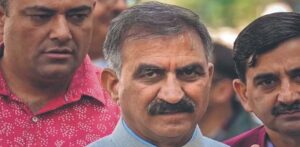As Himachal govt firefights mosque dispute, PWD Minister Vikramaditya calls for changes in Waqf Board laws

- ‘5 of 10 poll guarantees fulfilled’: CM Sukhu responds to PM Modi’s criticism on unkept promises - November 4, 2024
- Himachal CM reviews performance of his ministers, seeks to highlight welfare schemes - November 4, 2024
- 3 Punjab women arrested for chain snatchings at Kangra bus stand - November 4, 2024
Shimla: Amid the mosque dispute in Himachal Pradesh when the Sukhvinder Singh Sukhu-led Congress government is trying hard to firefight the communal tension, the state’s Public Works and Urban Development Minister, Vikramaditya Singh, has called for reforms in the Waqf Board laws.
Taking to social media on Sunday, the minister emphasised the need for changes in laws over time, specifically highlighting the Waqf Board’s relevance in contemporary society.
His comments have sparked a wave of public reactions, further intensifying the ongoing controversy as the protests are being spearheaded by Hindu outfits, mainly associated with opposition BJP.
In his post, Vikramaditya said, “The interests of Himachal and Himachaliyat are paramount for me, and my goal is the overall development of Himachal in every sphere.” He further said it was “necessary to bring changes in every law with time”. The Waqf Board also needed reforms with changing times, he said.
The minister’s remarks have been met with a deluge of responses from the public, with many seeing this as a pivotal moment that could influence the direction of the Hindu organisations’ ongoing agitation in the state.
Om Prakash, president of the Devbhoomi Sangharsh Samiti in Shillai, has been particularly vocal, accusing the Waqf Board of functioning as a “land mafia” and alleging illegal encroachments on government land across Himachal Pradesh. He has demanded the immediate dissolution of the Waqf Board and strict action against unauthorised mosques and tombs. “If timely steps are not taken, the Hindu society will launch a fierce agitation,” Prakash warned.
The current agitation traces its roots to a conflict between two groups at Malyana in Shimla, which has since led to widespread unrest. On September 1, demonstrators in Sanjauli claimed that a mosque in the area was built illegally, demanding its demolition.
They also accused members of a specific community, allegedly from outside the region, of disrupting the local atmosphere. The situation, initially sparked by concerns over an “illegal mosque,” has rapidly evolved into a broader movement across the state. Protesters now cite issues like involvement in criminal activities, drug trafficking and the concealment of outsiders’ identities, with demands for thorough verification of those involved.




